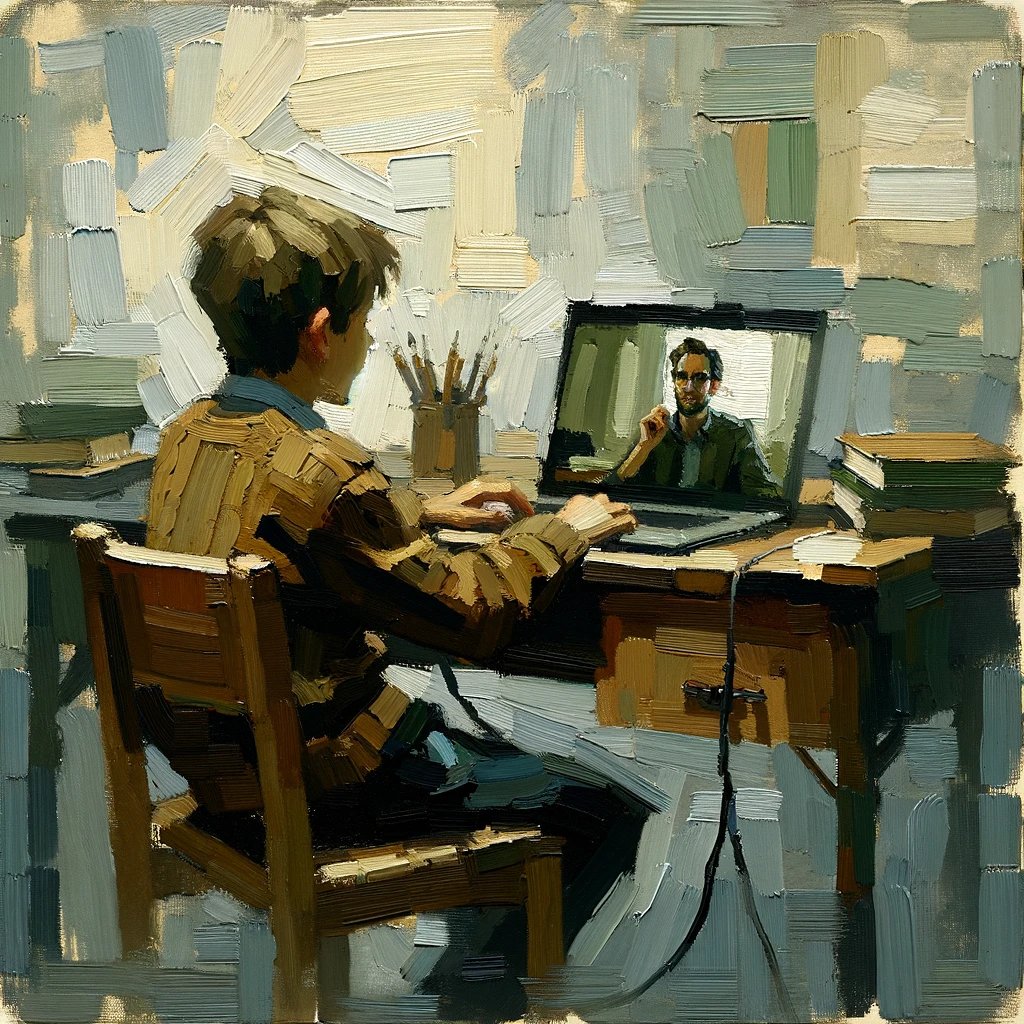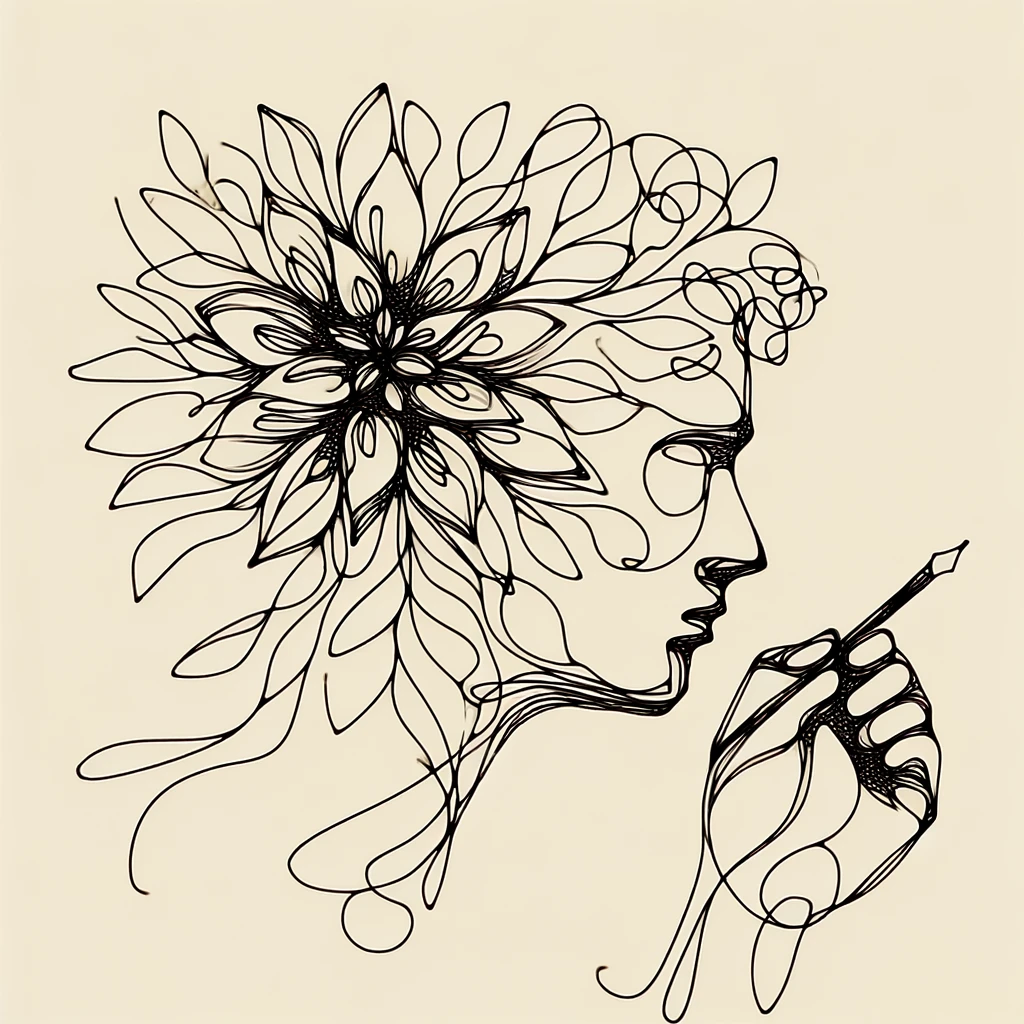
Welcome to our informational blog.
Topics covered include literary theory and practice, academic writing techniques, philosophy of education, and explanations of our methods for enhancing creative intelligence.
Mastering Multimodal Composition: The Role of Writing Coaches
Multimodal composition is not just an artistic choice but a necessity in today's digital landscape, where messages compete for attention in a sea of content. Writing coaches, with their deep understanding of diverse communicative forms, are instrumental in guiding writers to excel in this complex yet captivating domain.
Elevating Digital Communication: Writing Coaching for Digital Literacies
Writing coaches, with their nuanced understanding of both the art and science of writing, are uniquely positioned to guide their clients through the complexities of digital literacies, transforming them into adept digital communicators.
Famous Author-Editor Duos from Literary History
Throughout literary history, there have been numerous author-editor duos whose collaborations have resulted in some of the most iconic and enduring works in the canon(s). Here, we explore ten of the most famous author-editor pairings, highlighting their contributions to literature and the unique dynamics of their collaborations.
The Role of Online Writing Tutors in Teaching Effective Internet Use
In the digital age, the ability to effectively use the internet and evaluate the reliability of sources has become an essential skill set for students of all ages. Online writing tutors are uniquely positioned to teach these skills within the context of writing education.
Writing Coaches & the Literary “Resurgence”
As we stand on the cusp of potential future literary revolutions, it's exciting to consider what these periods of intense creativity have looked like in the past, and to speculate on the directions they might take in the future. Also exciting (for us, at least) is the question of what online writing tutors and writing coaches have to do with all this. How can we contribute?
Educational "Third Spaces": Tutoring & Innovation
In the vast and ever-changing landscape of education, "third spaces" constitute a transformative arena wherein the boundaries of traditional learning are challenged and expanded. These environments, neither strictly institutional nor purely informal, have become crucial incubators for pedagogical experimentation and innovation. At the heart of these spaces lies the age-old practice of tutoring.
Writing Coaching Candidate #8: The Creative Hobbyist
Writers like Emily and Joe do not write creatively as the means to a professional end, but as part of their journey toward more authentic personal expression and fulfillment. Creative writing coaches nurture these clients’ aspirations over time, providing guidance and encouragement tailored to their creative goals.
Writing Coaching Candidate #7: The Blogger and Content Creator
In the ever-evolving landscape of digital media, bloggers and content creators strive not only for originality but also for a connection with their readers. Creative writing coaches play a key role in helping them hone their brand, ensuring their content stands out in the increasingly crowded digital space.
Writing Coaching Candidate #6: The Academic or Researcher
Academics and researchers often stand at the crossroads of complex ideas and the need for clear communication. Academic writing coaches play a pivotal role in helping knowledge professionals navigate this terrain, ensuring their groundbreaking work is both accessible and engaging to a broader audience.
Writing Coaching Candidate #5: The Screenwriter and Playwright
The journey from script to screen or stage is intricate, involving not just the crafting of believable conversations in artificial settings, but also the ability to visualize (and ultimately externalize) written scenes and characters in a visceral way. Creative writing coaches can facilitate this process, aiding screenwriters and playwrights like Laura and Raj to bring their visions to life.
Writing Coaching Candidate #4: The Memoirist
Every memoir is a completely individual endeavor, yet it requires a level of universality to engage a wider readership. Creative nonfiction coaches play a pivotal role in this delicate balancing act, helping memoirists like Michael and Anita craft their life stories into compelling narratives.
A Writing Tutor’s Practical Strategies for Metacognitive Education
The development of metacognitive abilities in students is increasingly recognized as a key factor in enhancing learning outcomes. Accordingly, educators should study specific techniques for teaching them. At the Gilliam Writers Group, we feel that internet-based tutors are uniquely positioned to foster these skills, especially since the “mainstream-ification” of remote learning platforms.
Writing Coaching Candidate #3: The Business Professional
In the corporate world, effective communication is key to success, but often, the challenge lies in presenting ideas that are both clear and engaging. Creative business writing coaches help clients like Emma and Tom help bridge this gap, bringing a touch of narrative flair to the corporate landscape.
Metacognition & Education: How GWG’s Writing Tutors Navigate the Learning Mind
At the Gilliam Writers Group, we understand that writing is more than just stringing words together; it's a reflective, strategic process. This is where metacognition, the awareness and understanding of one's own thought processes, becomes pivotal. Our writing tutors not only guide our students in mastering language and structure but also in developing a metacognitive approach to writing. This involves teaching them to think about their thinking, strategize their learning, and reflect on their writing practices.
Writing Coaching Candidate #2: The Poet
When a poet seeks to distill emotions and fleeting impressions into words, every syllable can carry weight. A creative writing coach helps poets harness this power, guiding them to capture the essence of their thoughts and feelings in verse.
Writing Coaching Candidate #1: The Aspiring Novelist
Aspiring novelists generally approach the canvas of their imagination brimming with ideas, yet the path from concept to a well-structured novel can be labyrinthine. A creative writing coach steps in as a navigator, transforming the nebulous into the tangible.
A Comprehensive Guide for Writing Tutors on Assessing and Encouraging Student Progress
Writing is a complex skill that involves various cognitive processes and creative elements, making it challenging to teach and assess. For writing tutors, the task of evaluating student progress and encouraging continual growth requires a multi-faceted approach. In today’s post, I will outline several effective methods that the savvy writing tutor can employ to accurately assess and foster student development in writing and reading.
Metacognition in Focus: Understanding Its Impact on Learning and Psychological Well-Being
Metacognition, a term coined in the late 1970s, refers to the awareness and control of one's own thought processes. It's a concept that might sound abstract at first, but it plays a fundamental role in how we learn, solve problems, and perceive our own abilities. At its simplest, metacognition is thinking about thinking, or being aware of one's awareness.
Cultivating Critical Minds: 14 Writing Exercises from Gilliam Writers Group Tutors
In a world of fast-paced information and polarized viewpoints, critical thinking stands out as a non-negotiable skill for today’s students. The Gilliam Writers Group understands this; each writing tutor on our faculty has crafted their own suite of exercises that aim not only to sharpen students' critical faculties but also to broaden their creative horizons.
The Rise of Book Writing Coaches in the American Literary Economy
In the ever-evolving landscape of American literature, a new player has emerged as a pivotal figure: the book writing coach. This article delves into the growth and intricacies of the book coaching industry, examining its burgeoning role in the broader literary economy and its interplay with more traditional literary sectors.





















